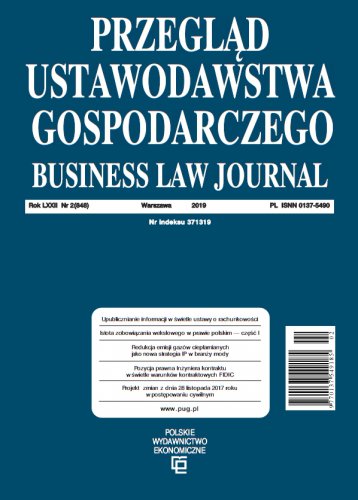Business Law Journal 03/2023
ISSN: 0137-5490
Pages: 37
Publication date: 2023
Place publication: Warszawa
Binding: paperback
Format: A4
Publication date: 2023
Place publication: Warszawa
Binding: paperback
Format: A4
DOI: 10.33226/0137-5490.2023.3.1
JEL: K23
DOI: 10.33226/0137-5490.2023.3.2
JEL: K20, K21
DOI: 10.33226/0137-5490.2023.3.3
JEL: K3, K12
DOI: 10.33226/0137-5490.2023.3.4
JEL: K12, K20, K22
DOI: 10.33226/0137-5490.2023.3.5
JEL: K23
| Odbiór osobisty | 0 € |
| Inpost Paczkomaty | 4 € |
| Kurier Inpost | 4 € |
| Kurier FedEX | 4 € |
| Free delivery in Reader's Club | from 47 € |

